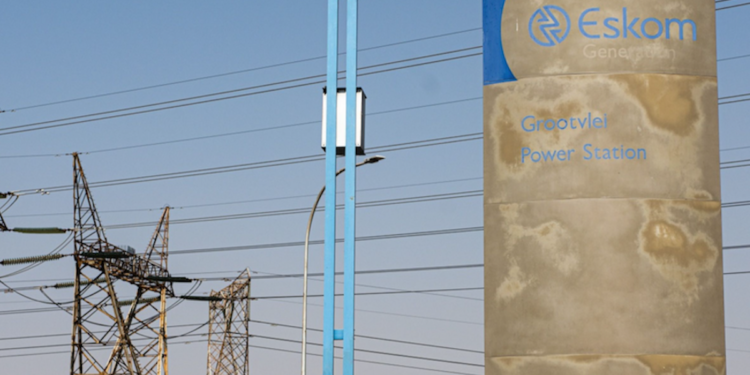Eskom, the South African power utility, has received a debt relief worth 254 billion rands ($13.9 billion) from the government over the next three years.
However, this assistance is conditional on the utility’s engagement of private partners to assist in managing its plants and electricity transmission network.
According to budget documents presented by Finance Minister Enoch Godongwana to lawmakers in Cape Town on Wednesday, the package offered will enhance Eskom Holdings SOC Ltd.’s balance sheet and finance all interest payments for the next three years. This will enable the utility company to allocate more funds towards plant maintenance and upgrading the transmission and distribution infrastructure, which is crucial in mitigating the current electricity crises faced by the country.
Eskom imposes an enormous drain on the economy. Prolonged and debilitating power failures are among the factors that prompted it to cut its economic growth forecast for 2023 to 0.9% from 1.4% in October.
National Treasury
The rand rose by up to 0.7% and was 0.2% stronger against the dollar, while the yield on South Africa’s highly tradable government debt due in 2026 decreased. Additionally, the yield on Eskom’s unsecured dollar notes that will mature in 2028 decreased by 45 basis points to 9.49%.
According to Elna Moolman, an economist at Standard Bank Group Ltd, the 2023 budget reaffirms the government’s commitment to stabilizing debt and achieving a primary surplus. This provides investors with some assurance that the general fiscal intent remains unchanged and offers greater clarity on how support for Eskom will impact the fiscal situation.
In addition, the relief granted to Eskom adds to the 263.4 billion rands in bailouts provided since 2008, when the company began implementing rolling blackouts that have had a negative impact on the economy. The success of the plan is contingent upon the implementation of electricity-tariff increases, which were approved by the nation’s energy regulator last month, but are politically unpopular and inflation-beating.
President Cyril Ramaphosa, who is expected to lead the ruling African National Congress in the upcoming election, has appealed to Eskom to suspend the tariff hikes of up to 18.7% due to the risk of the party losing its national majority, as indicated by opinion polls.
The government will give Eskom three annual advances totalling 184 billion rands until March 2026 to cover maturing debt and interest costs. The funding will be converted to equity if Eskom meets its performance criteria, with most of the transfers to be financed through additional borrowing. However, the plan will put a strain on public finances, with government debt expected to peak at 73.6% of GDP in 2026 and debt-service costs increasing to almost 20% of main-budget revenue.
The relief is conditional on Eskom meeting pre-determined performance targets, which an international consortium of energy experts will review. Eskom will also be expected to repay loans at market rates if it fails to meet its targets and will have to seek written permission from the finance minister to take on new borrowings from April until the end of the debt-relief period.
Read Also: South Africa’s Gov’t to Take Over 2/3 of Eskom’s $22 Billion Debt




